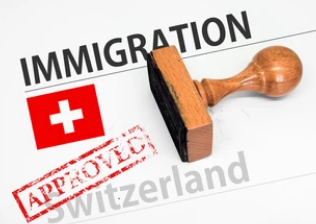Switzerland regularly ranks as one of the best countries in the world to retire.
Offering excellent healthcare facilities, great outdoor opportunities, low taxes and a high standard of lifestyle, Switzerland is a small country with many attractive aspects for foreigners who can afford it.
Most cities are nestled around beautiful lakes and surrounded by mountains, it is only a matter of choosing the right canton for you.
Before thinking of settling in Switzerland, the first step is to identify your future canton and place of residence.
Switzerland is divided into three distinct parts, the Swiss German, Swiss Italian and French speaking (Romandie) part.
English is well understood in most cities however in small villages and rural areas, locals speak mostly the language of the area and nothing else. It is not uncommon to see a Swiss person not being able to communicate to another due to the language barrier!
Geneva, Vaud and Zurich are three cantons with a relatively high number of expat communities due to the presence of UN and non-profit organizations and international companies.
Applying for residency as a EU-27/EFTA retiree:
If you are a citizen member of one of the 27 EU/EFTA countries, you benefit from the agreement on the free movement of persons allowing you to work, study or settle without an activity in Switzerland.
You have 90 days to settle and apply for your Swiss residency permit upon arrival. It is then up to cantonal authorities to deliver the relevant permit.
Each canton proceeds differently but as a general rule a new inhabitant has 14 days to announce his arrival to cantonal immigration authorities.
In Geneva, all arrival and permit procedures are reviewed by the Office cantonal of population and migrations (OCPM), while in Vaud for example it is the Contrôle de l’habitant of your commune of residence who processes arrival and EU permit application.
A retiree must be able to provide the proof of sufficient funds to cover his expenses and living costs in Switzerland (proof of personal assets or pension fund) and hold a valid health and accident insurance.
The B permit is then delivered for 5 years where the foreigner cannot work without having informed immigration authorities about the change of situation first.
A change of canton must also be requested from immigration authorities.
The retiree can buy a property as his main residence and settle in the canton once the B permit has been issued.
After 5 years holding the B permit, the EU citizen can apply for a C permit offering permanent residency in Switzerland.
After 10 years of residency in Switzerland and if meeting the integration conditions concerning language proficiency, employment and social aspects, the C permit holder can apply for Swiss citizenship.
Applying for residency as a non-EU citizen retiree:
For non-EU citizens the situation is quite different and the access to a B permit is subject to strict conditions regulated by the LEI (federal law on Foreigners and Integration).
Unless meeting the requirements for the tax lump sum agreement, where the retiree can negotiate with cantonal tax authorities a yearly fixed amount of tax based on his living expenses, obtaining a B permit for retirement must meet three conditions:
First of all, the retiree must be 55 years old minimum.
It is then required that the applicant demonstrates strong ties with Switzerland, such as proof of regular trips over the past years and existing social or family ties.
Lastly, proof of sufficient private funds to settle in Switzerland in the long-term must be demonstrated.
The application is first examined at the cantonal level, then at the federal level and the approval is up to the discretional power of authorities.
The retiree who receives a B permit cannot work and must request the authorization from cantonal authorities to move to another canton.
It is important to note that owning a property in Switzerland does not give you the right to obtain a Swiss residency permit.
We remain at your disposal for any questions, if you are planning to retire in Switzerland contact us to organize your residency permit!
09/11/2020 – Alexa Mossaz, immigration specialist at Legal Expat




